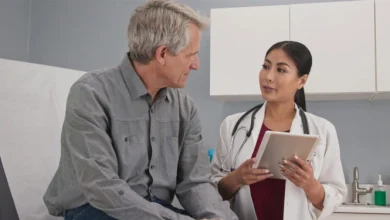Meeting the mental health care needs of Veterans

The need for mental health services for veterans is rising in San Antonio, as the city is among the most rapidly increasing for veterans in the nation. The Licensed Professional Mental Health Counsellor (LPMHC) internship program at South Texas VA not only fills that demand, but it also fortifies VA internally.
The internship program started its first training cohort in 2020, at the height of the COVID-19 pandemic, to meet the local veterans’ requirements for mental health care.
Dr. Jeremy Crostley, Chief of Psychology at the South Texas VA, said, “This program is helping us meet that need so Veterans don’t have to wait so long for appointments and receive the appropriate psychotherapies that they need.”
While there are several ways to assess the program’s effectiveness, one important turning point for the new initiative has been the hiring of health professions trainees by the VA following their graduation.
Five now working at South Texas
Training Director Tanya Workman expressed her pride that five of the nine students who began the program have applied and been hired to work at South Texas. “They have been adjusting to full-time work so smoothly that they have even obtained their complete Texas licence. That is solid evidence that the program is effective.
Tanya Workman, in the centre, meets with team members in the picture above.
The Office of Academic Affiliations (OAA) is in charge of overseeing the 78-year-old VA’s education mission, which aims to educate and train medical professionals to improve the standard of care and prompt access to care for veterans.
Dr. David Bell, Associate Chief of Staff for Education, believes that the South Texas VA’s educational program is advancing this goal even farther. “This initiative precisely aligns with our objective to educate. The best and the brightest are coming from our colleges and schools. They are providing care for veterans and their families in addition to working and training with our staff. The finest aspect is that this program has been so effective in keeping our team’s best and brightest members on board.
Numerous trainees cited the excellent curriculum and staff assistance as factors that supported their decision to remain with VA.
According to Payton Bostick, a former intern, “what I enjoyed most about the program was the support we got from the entire psychology department as well as the model we had in the program, so we always had someone to work with and we were never alone.” “Working with veterans really stoked my love for the job, so I wanted to stay with VA and carry on full-time.”
Connecting with Veterans most important
According to Workman, one of the program’s most crucial components is for the trainees to have a positive training experience and cultivate a team mindset throughout. “We simply want the trainees to collaborate and get rid of any sense of rivalry because we need to be able to trust each other and this work could really be the difference between life and death. We need to trust and support our veterans. We demonstrate to them how we relate to, interact with, and communicate with veterans. That is the most crucial factor.
Because of the experience they gain working with the Veteran population, Bell views the program as successful regardless of whether the trainees leave the VA or go on to work in the public sector. “They will have that expertise and understanding of what it means to deliver that best care to Veterans and their families, whether they stay here on our team or they go out into the community.”
The 120,000 health professionals trainees in 60 disciplines receiving training in VA health care programs across the nation include the San Antonio trainees. VA is the biggest supplier of health care education in the country thanks to its health professions education program, which collaborates with more than 1,500 academic institutions around the country.




